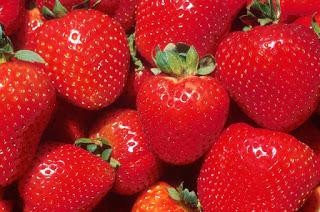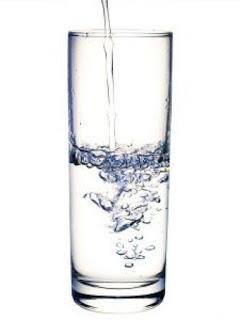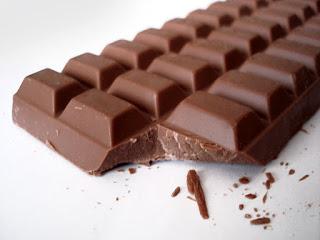That's why I was fascinated when this information popped up in my inbox from Skintology Skin and Laser Center in Manhattan. (
www.skintologyny.com) While I know I won't be making it to New York City any time soon, I can still take advantage of the professional expertise! I think there is a lot of misinformation out there about the connections between food intake and skin condition, and I appreciate having some of the most common myths debunked here as well. Read on for better skin! **********Want truly fabulous skin -- glowing, vibrant, and younger looking skin? Make sure you're putting foods for healthy skin on your plate. "Everything you eat becomes a part of not only your inner being, but the outer fabric of your body as well. The healthier the foods are that you consume, the better your skin will look," says Rachel Sharoff, a licensed aesthetician at Skintology Skin and Laser Center in Manhattan. The reverse is true as well. The less attention we pay to what goes in our mouth, the more problems we may see cropping up with our skin. "You could have sallow, dry and older-looking skin. It's not going to happen overnight, but starve your skin long enough, and it's going to show," says Rachel Sharoff. What's more, some health experts believe that when your diet is missing certain foods for healthy skin, other, even more serious skin problems can result. Sharoff points out that, “a number of conditions, such as acne, can cause you to suddenly break out. And some chronic skin conditions, such as eczema, may be linked to diet.”
Berries Strawberries, blueberries and blackberries pack high amounts of antioxidants. Antioxidants help block "free radicals," such as the sun's rays, from damaging skin cells. But don't toss your sunscreen. Eating berries is an extra step you can take to help protect your skin from damage and prevent premature aging. "Free radicals; like the kind formed from sun exposure damage the membrane of skin cells, potentially allowing damage to the DNA of that cell," says Rachel. The antioxidants and other phytochemicals in these fruits can protect the cell, so there is less chance for damage.” When you help protect the cells from damage and disintegration, you also guard against premature aging. In this respect, these fruits may very well help keep your skin younger looking longer," says Rachel.

Sweet Potatoes Vegetables such as sweet potatoes contain beta-carotene and vitamins A and C — a good formula for beautiful skin. These nutrients can help retain skin moisture and prevent dryness.
Low-Fat Dairy One the most important components of skin health is vitamin A. One of the best places to get it is low-fat dairy products. In fact, experts say that the health of our skin cells is dependent on dietary vitamin A. “The A in dairy products is true A, so everyone's skin can use it,” says Rachel Sharoff. She adds, “low-fat yogurt is not only high in vitamin A, but also acidophilus, the "live" bacteria that is good for intestinal health. It may also have an impact on the skin. Anything that helps keep digestion normal, any live bacteria or enzymes, is also going to be reflected in healthy-looking skin.”
Salmon, Walnuts, Canola Oil, and Flax Seed These seemingly unrelated foods all deliver essential fatty acids, and thus are key foods for healthy skin. Essential fatty acids are responsible for healthy cell membranes, which is not only what act as barriers to harmful things but also as the passageway for nutrients to cross in and out and for waste products to get in and out of the cell. Rachel Sharoff explains that, “Because it is the cell membrane that also holds water in, the stronger that barrier is the better your cells can hold moisture. And that means plumper, younger looking skin.” The same inflammatory process that can harm our arteries and cause heart disease can harm skin cells. Essential fatty acids can offer protection to both. The best-known essential fatty acids are omega 3 and omega 6, which must be in balance for good health (and good skin). Though we all seem to get enough omega 6, Stuart says many people lack omega 3s. Fish, walnut, and flax seed oil are among the best sources.
Oils Oils can give your skin much needed moisture. Just make sure you're using healthy oils, such as olive oil. Adding just 2 tablespoons a day to your diet will help keep your skin properly lubricated and healthy.
Whole Grains The mineral selenium is an antioxidant found in whole-grain products. Selenium can help control cell damage that can lead to skin cancer. Filling up on whole grains will help you avoid refined white flour and starchy foods that can increase your insulin levels. High insulin levels can induce inflammation and irritate your skin.
Green Tea This beverage deserves its own category in any article about foods for healthy skin. The skin-health properties in this beneficial drink just can't be beat. "It has anti-inflammatory properties, and it's protective to the cell membrane. It may even help prevent or reduce the risk of skin cancer," says Rachel Sharoff. Indeed, a study published recently in the Archives of Dermatology shows that whether taken orally or applied to the skin, green tea can reduce the risk of damage from ultraviolet light (such as the burning rays of the sun), and thus reduce the risk of skin cancer.
Water While the exact amount you should drink each day varies, no one disputes the role good hydration plays in keeping skin looking healthy and even young. When that hydration comes from pure, clean water; not liquids such as soda or even soup, experts say skin cells rejoice. "It is my belief that our skin needs at least eight glasses every day," says Rachel Sharoff. In addition to keeping cells hydrated, water helps cells move nutrients in and toxins out, which Rachel Sharoff says automatically leaves skin looking better. She adds that, “when we're properly hydrated, we also sweat more efficiently.”

Chocolate Causes Acne Fried foods don’t, either. There is no little pipeline that carries oil from your intestines to your skin. Oily foods have nothing to do with the skin’s oiliness, and oil isn’t the cause of acne, anyway. Acne occurs when testosterone and other hormones stimulate the growth of skin over pores so that the oil, sebum, that keeps the skin flexible and wrinkle-free, gets trapped inside. When bacteria degrade this oil, then there can be whiteheads, blackheads, and various kinds of inflammation.

Junk Food and Dark Colas Cause Acne Experts agree that there is no evidence to support the claim that gorging on pizza and Coke leads to acne. However, if you notice that your acne flare up significantly after consuming certain foods or beverages, eliminate those items and watch your skin. You may have stumbled in your own free brand of treatment.
Vitamin A Prevents Acne The Truth - Vitamin A is an important part of skin health. Basically, if you don’t have enough Vitamin A in your system, your sebaceous glands produce excess lipids, causing pimples, but if you have too much vitamin A, while your pimples might not be the issue, other parts of your body, like your liver, may be negatively affected. The optimal daily intake with food and supplementation is about 15,000 IU.
ABOUT SKINTOLOGY
Skintology Skin and Laser Center is an all-inclusive destination for all your beauty needs. Whether it’s laser hair removal, Botox injections or a hydrating facial, our trusted staff is dedicated to making your experience comfortable and pleasant. We offer customized treatments that are specifically designed for your skin type. Patient satisfaction is our top priority and we design treatments to produce the best results possible. Experienced Cosmetic Surgeons and Laser Technicians utilize the most advanced FDA approved laser technologies from renowned companies such as Cynosure, Candela, Lumenis, and Deka, to provide the most effective and safe treatments.

